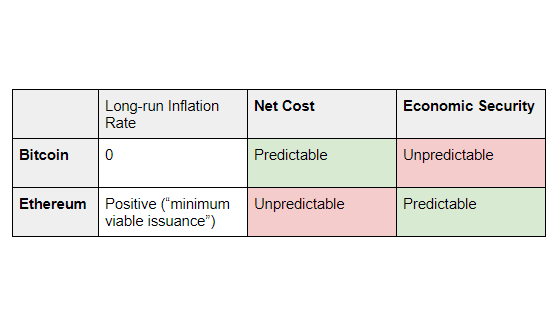
Most people in crypto are used to thinking about inflation as a purely social or monetary design choice. But a cryptocurrency's inflation rate is also a lever to shift the volatility of demand between having a predictable cost for users OR a predictable level of security. 

In the future, inflation in Bitcoin will go to zero, and miners are paid only with transaction fees. Since demand is uncertain, the size of the miner reward (and hence network security) is unpredictable.
In Ethereum, validators are paid primarily with inflation, establishing a predictable floor for security. Inflation can be offset by deflation from burning transaction fees. But demand to transact is once again uncertain, making the total inflation rate is unpredictable.
As we can see, there is no silver bullet when it comes to the economic security of public blockchains. It is always derived from volatile user demand. We can’t suppress that volatility, but we can change its release valve, depending on the core values of each community. 

• • •
Missing some Tweet in this thread? You can try to
force a refresh


